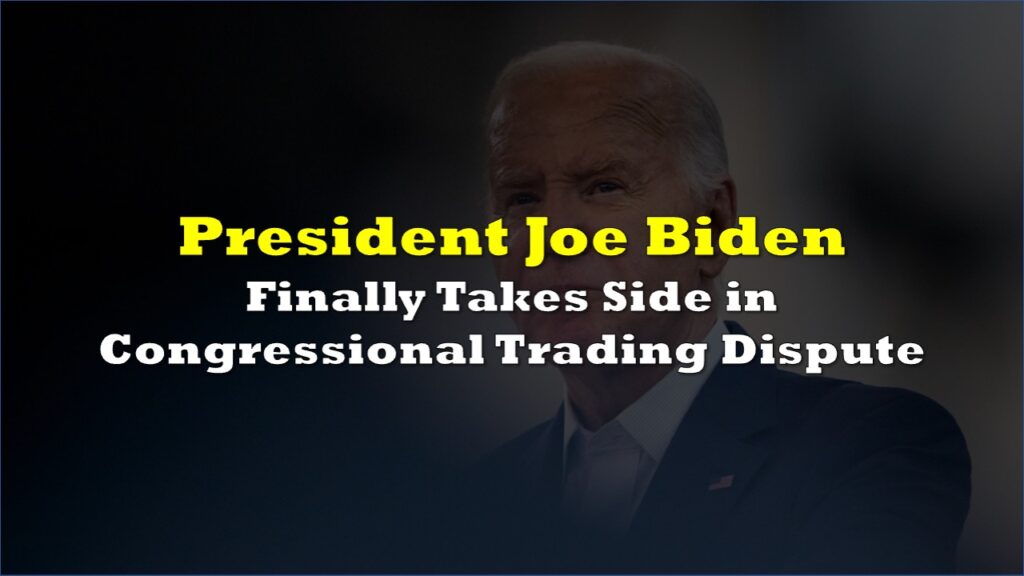The Biden administration has approved the huge Willow oil drilling project in Alaska, infuriating environmentalists and paving the way for a legal challenge.
The Willow Master Development Plan is a $6 billion proposal from ConocoPhillips to drill oil inside the National Petroleum Reserve in Alaska. According to the oil company, the project may generate up to $17 billion in revenue for federal, state, and local governments while also creating over 2,800 jobs.
Willow would also produce 600 million barrels of oil, which is roughly 1.5 times the existing supply in the United States’ Petroleum Strategic Reserve. The Biden administration claims that increasing oil production would help keep consumer energy prices low – a claim that economists dispute, stating that price drops will take years.
Willow’s projected development would take place on the petroleum reserve’s North Slope, a 23 million-acre territory that is the largest undeveloped public land in the United States.
The proposed location is described by the Bureau of Land Management (BLM) as “critical” to local wildlife, supporting “thousands of migratory birds” and serving as “a primary calving area” for local caribou. Beyond the region, the BLM estimates that the project would emit 9.2 million metric tons of carbon pollution per year, contributing to human-caused climate change. This is the equivalent of around 2 million gas-powered cars’ emissions.
The decision comes at a time when the Strategic Petroleum Reserve is at its nearly four-decade low after a series of releases by the Biden administration.
A loss for climate activism
It is a big setback for climate activists and Alaska Natives who opposed Willow, claiming it would jeopardize the president’s ambitious climate objectives and pose health and environmental dangers.
The idea has sparked a wave of internet activity against it, with over a million emails submitted to the White House in opposition and a Change.org petition with millions of signatures.
Environmentalists are expected to sue to stop the project. Earthjustice, an environmental law firm, has been drafting a case against the project, arguing that the Biden administration’s jurisdiction to safeguard resources on Alaska’s public lands includes taking efforts to minimize carbon pollution, which the Willow Project will eventually add to.
“We are too late in the climate crisis to approve massive oil and gas projects that directly undermine the new clean economy that the Biden Administration committed to advancing,” Earthjustice President Abigail Dillen said. “We know President Biden understands the existential threat of climate, but he is approving a project that derails his own climate goals.”
Temperatures have now risen in Alaska to the point where permafrost is thawing.
— Earthjustice (@Earthjustice) March 8, 2023
As it threatens to add 280 million metric tons of climate pollution to the atmosphere with the Willow Project, ConocoPhillips has even said it may need chillers to keep the ground under Willow cold. pic.twitter.com/UDDsbC90E0
Many climate activists are calling out US President Joe Biden on his campaign promise to stay away from drilling activities, especially on native lands.
On social media, opposition to the idea has spread quickly and far. According to TikTok users, the issue’s decentralized structure is perfectly suited to the platform: it’s popular because there is no single message or group dominating the discourse.
“This is an economic issue, an environmental issue and a social issue,” explained Alex Haraus, a 25-year-old environmentalist whose videos on the Willow Project have been viewed millions of times. “A lot of times in the past, we’ve seen groups take a stance on one thing and say that’s why everyone should care. But in this case, we’ve really just said, ‘here are all of the reasons why you should care. Pick whatever you’re passionate about and talk about it in your own way.'”
TikTok’s daily top 10 lists have included hashtags such as #willowproject, #stopwillow, and #stopthewillowproject. In the previous month, posts with the hashtag #willowproject have received over 88 million views in the United States.
Biden just approved Willow.
— Elise Joshi (@EliseJoshi) March 13, 2023
He pledged to end drilling on federal lands. Millions of us collectively urged him not to approve Willow and took over the internet in doing so.
And he did it anyways. pic.twitter.com/6gnsEWs3Iu
A win for bipartisanship
But the decision is a success for Alaska’s bipartisan congressional delegation and a coalition of Alaska Native tribes and others that praised the drilling venture as a much-needed fresh source of cash and jobs for the remote territory.
“We finally did it, Willow is finally reapproved, and we can almost literally feel Alaska’s future brightening because of it,” Republican Sen. Lisa Murkowski of Alaska said in a statement.
Democratic Rep. Mary Peltola, the first Alaska Native in Congress, thanked the president “for listening to the voices of Alaskans when it mattered most.”
“After years of consistent, determined advocacy for this project, from people all across the state and from every walk of life, the Willow Project is finally moving forward,” Peltola said.
Alaska Native groups who supported the project because of the jobs and cash it would bring to the region applauded the decision as well.
In a statement released Monday, Nagruk Harcharek, head of the advocacy group Voice of the Arctic Iupiat, said his group was “grateful” to President Joseph Biden and his senior advisers for authorizing the project and “heeding the will of Alaska Native communities in support of the Willow Project.”
Mixed signals
Following the Willow project decision, however, Biden will reportedly announce sweeping new restrictions on offshore oil leasing in the Arctic Ocean as well as new conservation measures in Alaska.
On Monday, the President declared the entire Arctic Ocean off limits to oil and gas leasing, as well as announced that the Interior Department will release new guidelines to preserve more than 13 million acres of Alaska’s National Petroleum Reserve from oil and gas leasing.
Biden also announced new safeguards for a variety of Alaskan sites, including Teshekpuk Lake, Utukok Uplands, Colville River, Kasegaluk Lagoon, and Peard Bay Protected Areas, in addition to the prohibition on new Arctic drilling. The regulations, according to an administration official, establish a “fire wall” against future leasing in North Slope and Arctic lands and waterways.
While applauding the decision to authorize the Willow Project, Alaska Republican Sen. Dan Sullivan opposed the upcoming protective measures.
“The fact that this Willow [approval] comes with the announcement of future legally-dubious resource development restrictions on Alaska lands and waters is infuriating and demonstrates that the Biden Administration’s unprecedented lock-up of our state will continue,” Sullivan said in a statement.
Campaign promise broken
The Trump administration initially approved the Willow Project in late 2020, but a federal judge revoked development licenses, claiming that early government reviews did not contain mitigation measures for polar bears.
The BLM released a fresh environmental impact analysis of the plan on February 1, suggesting fewer drilling locations and less surface infrastructure such as roads and pipelines. It was described as “a practical way forward” by ConocoPhillips.
According to the sources, the ultimate scope of the project will encompass 68,000 less acres than ConocoPhillips had requested.
“This was the right decision for Alaska and our nation,” ConocoPhillips CEO Ryan Lance said in a statement. “Willow fits within the Biden Administration’s priorities on environmental and social justice, facilitating the energy transition and enhancing our energy security, all while creating good union jobs and providing benefits to Alaska Native communities.”
Finally, Interior Secretary Deb Haaland has the last say. She might approve the original ConocoPhillips plan, approve the BLM’s updated plan, suspend the project entirely, or take any other step.
Initially, the Interior Department stated that the amended plan raised significant concerns about Willow’s impact on greenhouse gas emissions.
But, it has been days since the completion of a formal 30-day review period on the BLM plan, when many watchers expected a decision. The Interior Department stated Friday morning that it has no information on the timeliness of a decision.
The White House press secretary, Karine Jean-Pierre, has emphasised in recent days that no final decision has been made. Another administration official claimed that presidential advisers were debating whether the government had the legal right to reject permits to ConocoPhillips, which has long held leases on the petroleum reserve property.
Putting an end to Willow would place the Biden administration in a difficult political position. The president campaigned on a promise not to allow additional drilling on federal lands, but in office, he has prioritized decreasing energy prices amid global oil market uncertainties.
Biden on the 2020 campaign trail: "No more drilling on federal lands, period. Period, period, period."
— Julia Rock (@jul1arock) March 13, 2023
He just approved the largest drilling project being considered on federal lands.https://t.co/HoHkQKHeHq
President Biden officially approved the Willow Project.
— Sunrise Movement 🌅 (@sunrisemvmt) March 13, 2023
Instead of sticking to his own climate goals and listening to the millions of young people who carried the party for the last three election cycles, @POTUS is letting the fossil fuel industry have their way. pic.twitter.com/45mjJflMYK
Even on his side of the aisle, prominent names focused on the climate agenda have called out Biden in the apparent decision to approve the Willow Project.
.@POTUS pledged to end new drilling on federal lands.
— Congresswoman Rashida Tlaib (@RepRashida) March 13, 2023
This disastrous decision to approve the Willow Project in Alaska, one of the largest oil development projects in decades, will have devastating consequences on our planet, frontline communities, and wildlife. pic.twitter.com/RAZikTpVTt
The Willow project has been estimated to produce 287 million tons of carbon dioxide — the equivalent of the annual emissions from 76 coal plants — and cause nearly $20 billion in climate change-related damages. The only acceptable Willow project is no Willow project. #StopWillow https://t.co/ZOydaXtr3C
— Rep. Alexandria Ocasio-Cortez (@RepAOC) March 13, 2023
As president I would immediately cancel the Willow project.
— Marianne Williamson (@marwilliamson) March 13, 2023
We’re either going to save the planet, or we’re not.
Right now we are stealing from our grandchildren the right to safely inhabit this world.https://t.co/x3pRaYWUGu
The Alaska Wilderness League, which seeks to protect Alaska’s natural areas from industry and fossil fuel drilling, expressed great disappointment with the approval.
“This is the wrong decision for our climate future, for protecting biodiversity, and for honoring the frontline communities who have raised their voices against this project,” said Kristen Miller, the executive director of the Alaska Wilderness League.
Information for this briefing was found via The New York Times, NPR, CNN, and the sources mentioned. The author has no securities or affiliations related to this organization. Not a recommendation to buy or sell. Always do additional research and consult a professional before purchasing a security. The author holds no licenses.









